On September 28, Boao Forum for Asia (BFA) held the Second Conference of International Science, Technology and Innovation Forum (ISTIF). As a major forum of the conference this year, the session “from Molecular Design to Materials Application” was successfully held.
The Session was divided into two parts: keynote speech and report presentation. Linge Wang, Vice President of Frontier Soft Materials Institute of the South China University of Technology, hosted the session. Through online and offline interactions, top scholars and industry leaders from China and other countries shared new ideas and perspectives on the development of functional, intelligent and innovative materials in this new era.
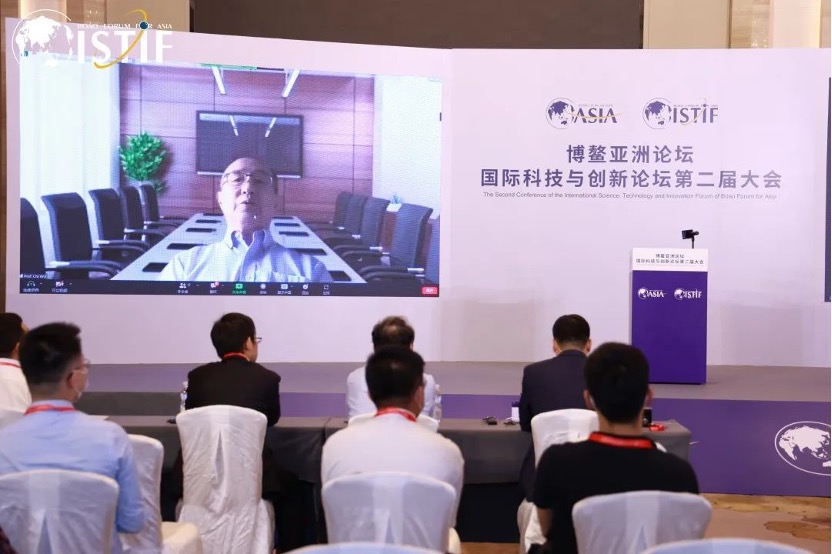
During the keynote speech, Qi Wu, an academician of the Chinese Academy of Sciences and a member of the Food Science and Processing Research Center of Shenzhen University, discussed the trend of replacing animal proteins with plant proteins which received increasing attention in China and abroad in recent years and also pointed out the difference between "vegetarian" and "vegan" meat. Also, from the perspective of cultural confidence, Wu emphasized the term “vegetarian meat” instead of the nonsense names in the market such as artificial meat, plant-based meat and plant meat. Furthermore, Wu analyzed in depth why and how to use plant protein instead of animal protein.
According to Wu, "The current processing technology for plant proteins involves the traditional low-moisture extrusion shaping process. The use of extrusion moulding machines is unable to properly stretch and orient the curled-up spherical soy protein molecular chains, thus it is not possible to reconstitute the plant protein macromolecules into an arrangement and organization similar to that found in animal meat. As the result, the taste of animal meat cannot be achieved. Therefore, it is necessary to conduct research and development to reconstitute soy protein macromolecules into vegetarian meat with a similar structure and texture (mechanical properties) to animal meat". Wu and his team are now working on resolving the taste problems in the process of replacing animal proteins with plant proteins based on their in-depth understanding of macromolecular physics. He expressed his expectation to develop real vegetarian meat as soon as possible to meet the consumers’ needs.
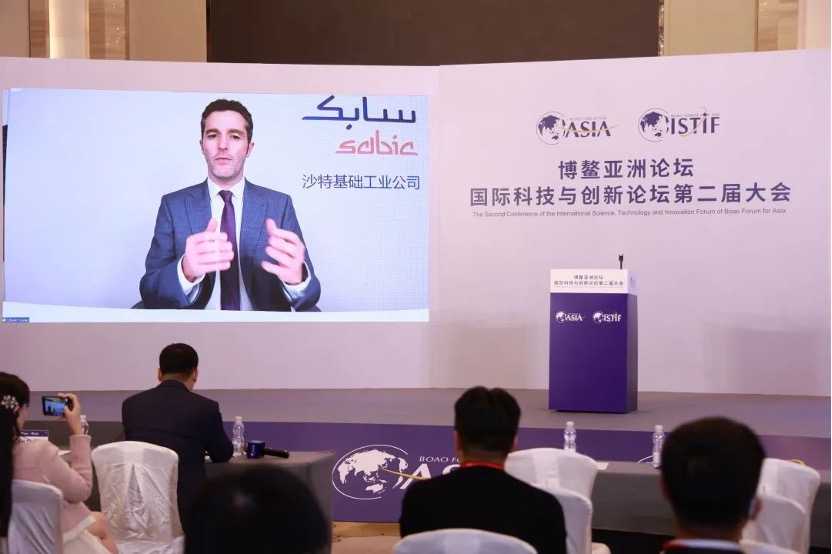
Paul D. Topham, Dean of the School of Infrastructure and Sustainable Engineering at Aston University, starting with the design, preparation and application of the molecules, presented details of his team's development of thermosensitive anchored block copolymers based on environmentally friendly hydrophobic ink materials. Also, Topham gave an introduction to their application in commercial inkjet printing from toxic organic solvents to aqueous formulations. Compared with the most current commercial solutions, thermosensitive anchored block copolymers present attributes such as environmentally friendly, better adhesion and ink preservation.
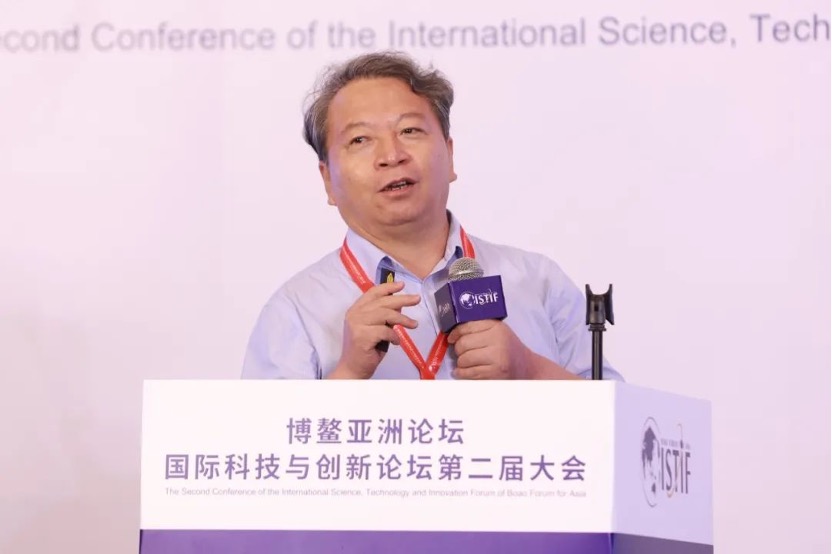
During the report presentation part, Guangzhao Zhang, a professor at the School of Materials Science and Engineering, South China University of Technology, shared his views on the new generation of marine anti-fouling materials. He pointed out that marine antifouling is closely related to the national strategy of strengthening the ocean, while marine antifouling represents a global challenge. In response to this challenge, Zhang and his team proposed the strategy of "dynamic surface antifouling", with the core idea that "a surface that undergoes constant physical or chemical changes can effectively reduce the landing and adhesion of fouling organisms".
According to Zhang's presentation, the team successfully developed biodegradable polymer-based dynamic surface antifouling materials, whose degradation products are organic small molecules, avoiding the problem of microplastic pollution and achieving static antifouling, long-lasting antifouling and eco-friendly. The related technology was awarded the first prize of Guangdong Provincial Technical Invention and the gold prize of Guangdong Provincial Patent.
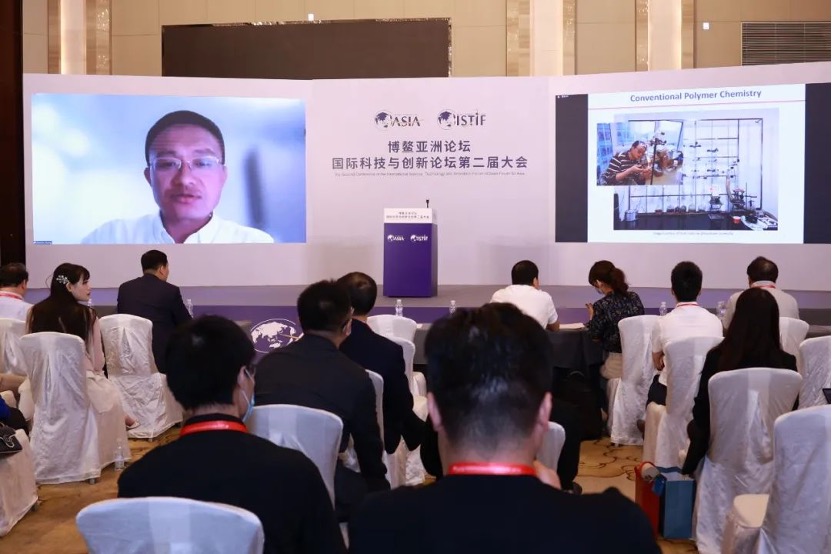
Wenbin Zhang, professor at the School of Chemical and Molecular Engineering at Peking University, gave a presentation on the design, synthesis and application of topological proteins. "The message I want to deliver today is that although the central law restricts the natural nascent protein chains to be linear in structure, we can still edit the sequence of DNA to make the nascent proteins spontaneously undergo processes such as assembly, shearing and reaction to generate proteins with special topological structures. By adding a new dimension to protein engineering, our measure holds great promise for applications in drugs, industrial enzymes, biomaterials, and so forth."
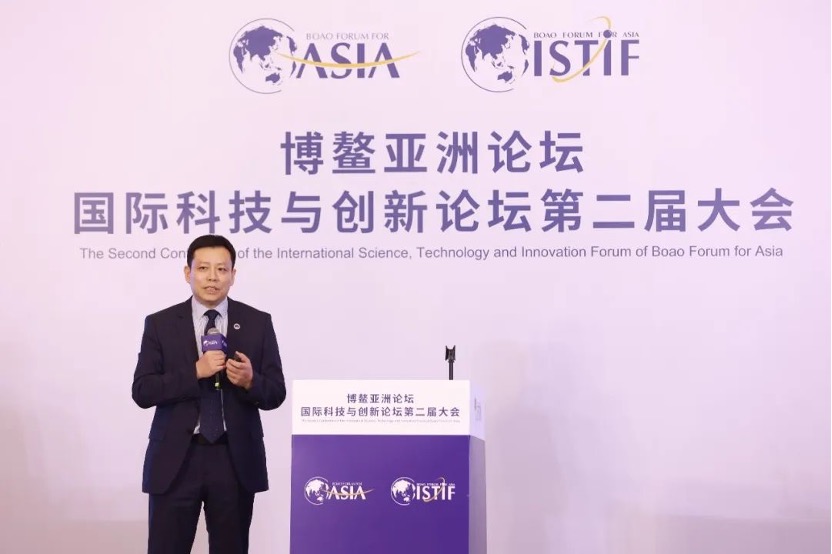
Linge Wang, professor at the School of Frontier Soft Materials, South China University of Technology, spoke on "Scalable preparation and delivery of anti-cancer drugs by virus-like polymeric nanovesicles". He introduced that nanomedicines in nanomaterials are becoming a new favorite in the pharmaceutical field, influencing the original drug development model. With the solution of key technologies such as scalable and controllable preparation, controlled drug loading and precise regulated release of virus-like polymeric nano-vesicle carriers, relevant pharmaceutical companies and biomedical product enterprises will provide effective technical support and industry chain extension for the development of new products, which will become a crucial point of interest in the future pharmaceutical field.
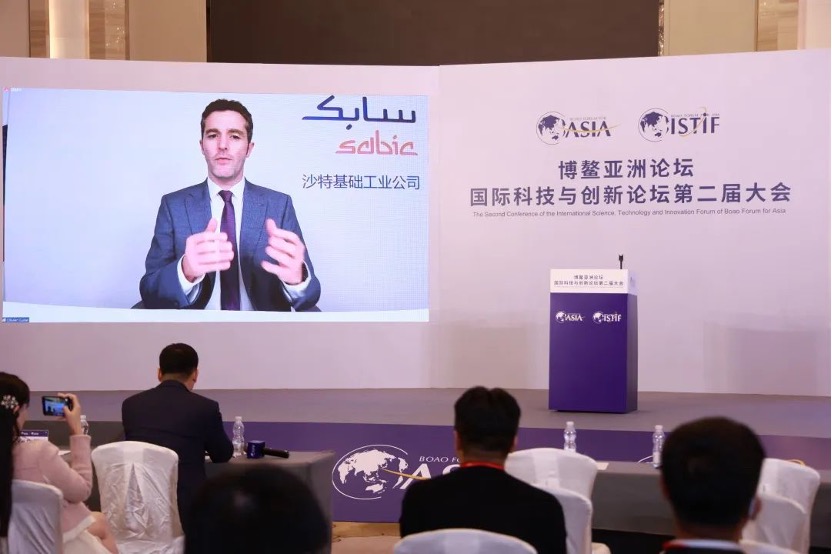
Olivier Guise, Director of the Asia-Pacific Science and Technology Innovation Department of SABIC, focused on circular economy solutions and upstream and downstream applications of innovative materials. Guise suggested, “one of the biggest challenges now is that many boxes are cardboard boxes which are thrown away after a single use. Considering the recyclability and reusability, we have developed a lightweight expanded polypropylene material to make it into an e-commerce box that can be reused many times, and after the goods are delivered to you, you can still use the box as a specific container for daily use."